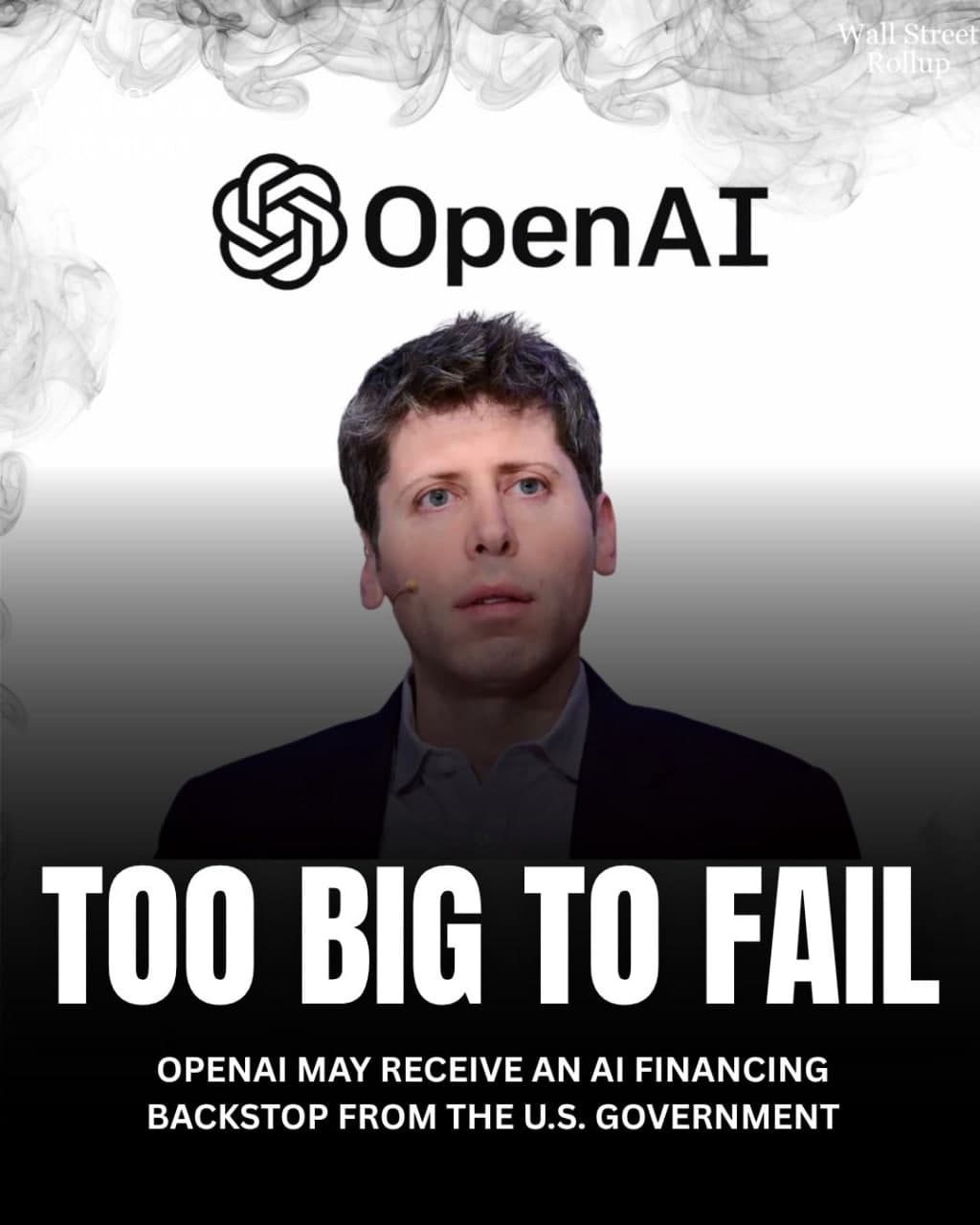OpenAI CEO Sam Altman Claims Company is "Too Big to Fail"
In a recent statement, Sam Altman, the CEO of OpenAI, asserted that his company has reached a critical juncture where it is "too big to fail." This declaration comes amid growing discussions about the role of artificial intelligence (AI) in the U.S. economy and the potential implications of a major AI firm"s failure. Altman also emphasized that the U.S. government serves as the “insurer of last resort for AI financing,” indicating a reliance on federal support for the burgeoning AI sector.
Key Details
The term "too big to fail" (TBTF) is a concept originating from the banking and finance sectors, particularly highlighted during the 2008 financial crisis. It posits that certain corporations, especially large financial institutions, are so integral to the economy that their collapse could lead to widespread economic turmoil. As such, these entities are often considered for government intervention to prevent their failure.
Recent economic data reveals a stark reality: without the contributions of AI, the U.S. economy is currently in a recession. Notably, it is estimated that as much as 63% of the nation’s GDP growth is attributable to investments in AI technologies. This statistic underscores the significant impact that AI has on the overall economic landscape.
Altman’s assertion that OpenAI is "too big to fail" raises critical questions about the future of the company and the broader implications for the U.S. economy. Should OpenAI face financial difficulties, its downfall could potentially trigger a significant economic crisis, given its substantial role in driving GDP growth through AI investments.
These considerations lead to a pivotal question: Should the American taxpayer be responsible for bailing out OpenAI if it encounters financial distress? This inquiry touches on broader themes of corporate responsibility and the ethics of government intervention in private enterprise.
Background
OpenAI, founded in December 2015, has rapidly evolved into a leading entity in the field of artificial intelligence. The company is known for developing advanced AI models, including the widely recognized GPT series. As AI technology continues to advance, its applications span various sectors, including healthcare, finance, and transportation, further solidifying its importance in the economy.
The concept of "too big to fail" gained prominence in the aftermath of the 2008 financial crisis, when several major financial institutions required government bailouts to prevent systemic collapse. This historical context is crucial as it parallels the current discussions surrounding AI and its potential economic ramifications.
What"s Next
The implications of Altman"s statements are significant for the future of AI regulation and investment in the United States. As the government navigates the complexities of AI financing, the discussions surrounding the potential need for a federal backstop for AI investments are becoming increasingly relevant. Recent developments in this area suggest that there may be a growing consensus on the necessity of government involvement to ensure the stability of the AI sector.
For further insights into the evolving landscape of AI financing, see recent developments regarding OpenAI"s pursuit of federal support for its investments.
As the dialogue continues, stakeholders in both the public and private sectors will need to consider the balance between fostering innovation and ensuring economic stability. The future of OpenAI, and by extension, the U.S. economy, may depend on how these critical questions are addressed in the coming months.







![[Video] Gunfire between Iraqi security forces and Sadr militias in Baghdad](/_next/image?url=%2Fapi%2Fimage%2Fthumbnails%2Fthumbnail-1768343508874-4redb-thumbnail.jpg&w=3840&q=75)
